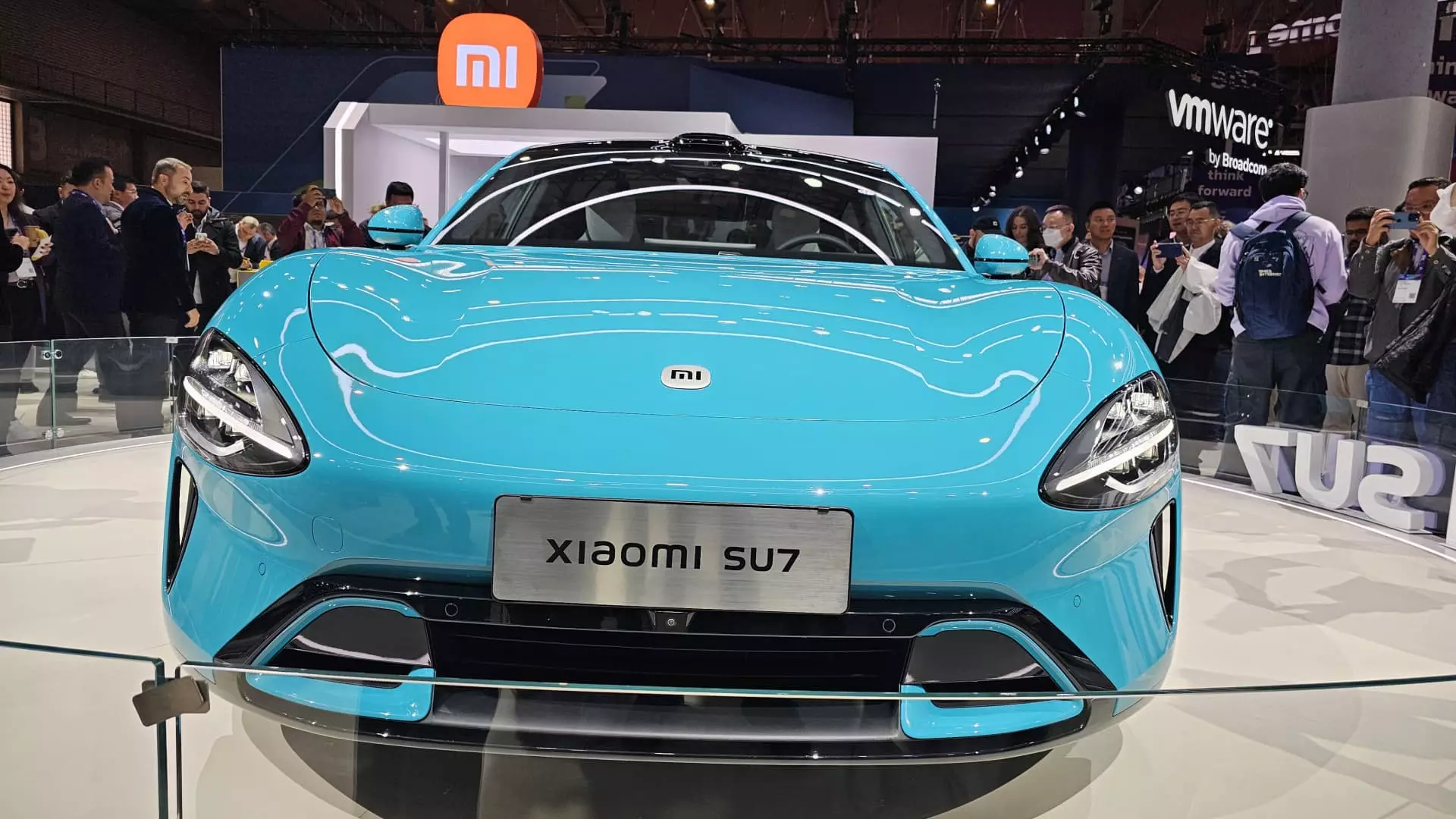The Chinese smartphone giant Xiaomi has made a groundbreaking entry into the electric vehicle market with its new electric SU7 sedan. Since its launch in late March, the vehicle has garnered an impressive 70,000 orders as of April 20, exceeding the company’s initial projections. CEO Lei Jun revealed that Xiaomi is on track to deliver 100,000 units of the electric sedan by the end of the year, showcasing the strong demand for the product in the market. Despite undercutting Tesla’s Model 3 on price by $4,000, the SU7 has seen unprecedented success, positioning Xiaomi closer to profitability in the electric vehicle segment.
Analysts at Citi have expressed optimism regarding Xiaomi’s electric vehicle venture, highlighting that the company could reach breakeven if annual sales hit the range of 300,000 to 400,000 units. This positive outlook has prompted Citi analysts to revise their profit margin forecasts for Xiaomi’s autos segment to 6% for the year, a significant improvement from the previous projected loss of 10%. Moreover, the revised earnings per share forecast for Xiaomi reflects a 25% increase, showcasing the potential profitability of the electric vehicle business. Comparatively, Tesla China sold over 600,000 cars last year, indicating the scale of competition in the Chinese electric vehicle market.
Looking ahead, Xiaomi has ambitious plans for its electric vehicle lineup, with an SUV model slated for release in the second half of 2025. Despite the success of the SU7 sedan, CEO Lei Jun emphasized the company’s focus on the domestic market for the next three years before considering global expansion. Xiaomi’s global footprint and loyal fan base position it as a potential global player in the automotive industry once it decides to venture beyond China. The company’s strategic approach towards expanding production capacity and reducing costs through supplier collaborations underscores its commitment to long-term growth in the electric vehicle sector.
As Xiaomi continues to gain traction in the electric vehicle market, it faces challenges in maintaining profitability and market share against established players like Tesla, Li Auto, and Nio. While the competitive landscape is fierce, Xiaomi’s innovative approach to pricing and technological advancements could carve out a unique position for the company in the market. The gradual decline in Tesla’s gross margin over the past quarters presents an opportunity for Xiaomi to capitalize on cost-effective manufacturing and efficient supply chain management to gain a competitive edge.
Xiaomi’s foray into the electric vehicle market with the SU7 sedan has exceeded expectations and positioned the company as a formidable player in the industry. With strong sales figures and optimistic projections for the future, Xiaomi’s electric vehicle venture holds significant promise for growth and success. By leveraging its global influence, loyal customer base, and strategic partnerships, Xiaomi is poised to disrupt the electric vehicle market and emerge as a key player in the evolving automotive landscape.


Leave a Reply